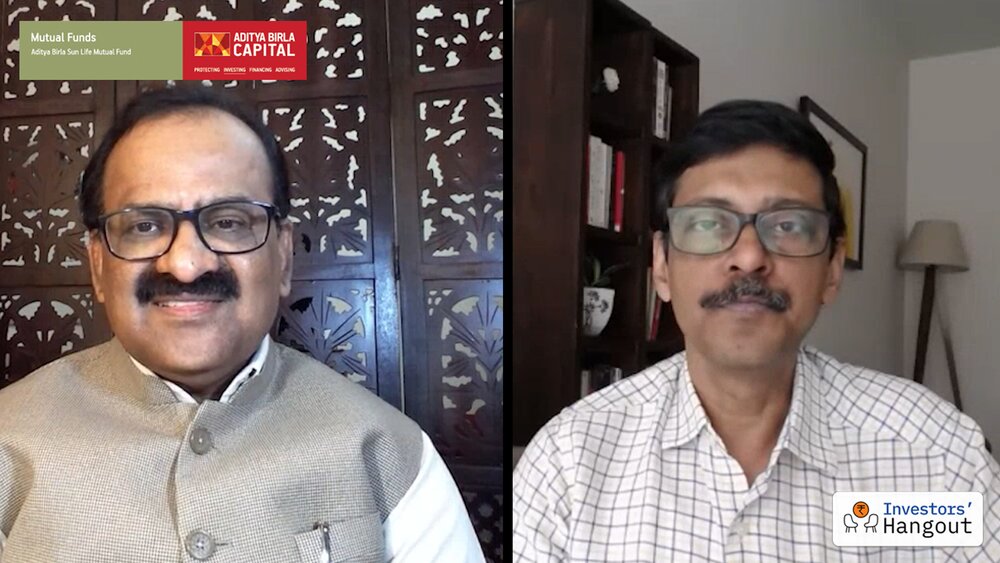
Why do we invest? The answer is very simple: to create wealth. The trouble is that most of us have a single source of income and there are various needs that are immediate, medium term and long term. If we move from one goal to another with our accumulated savings, we would be left with almost nothing for our long-term goals. This is why it is important to not just save money, but to use it to make investments that will help create wealth over a long period of time.
A good head start can make all the difference. They say if you lose an hour in the morning, you will spend all day looking for it. When it comes to investing, a late start can mean you will spend years effortfully trying to build wealth you would otherwise have easily made. When youngsters in their early 20s begin their first jobs, they tend to not be very interested in saving and investing for their retirement, which is quite far away, much like the four- or five-year-olds who can't understand why they've got to go to school at such an early age. As young children start preparing early for college that is 12-15 years away, similarly young earners should save to invest for their retirement that is nearly 40 years away.
The advantages of starting to invest early are unparalleled. In most cases, you don't have anyone depending on your income when you start earning. That is the best time to inculcate the habit of saving. Sure, you'd like to spend the money you earn on products and services, and perhaps there's nothing wrong in being materialistic. But if you start your investments as early as possible and manage to invest even a small amount to begin with, you'll see your savings grow substantially, thanks to compound interest.
Here is an example that illustrates the effectiveness of compounding. Person X investing just Rs 1000 a month for retirement for a period of 30 years at an interest rate of 12 per cent per annum amasses the neat sum of around Rs 30.8 lakh. And yet, person Y investing Rs 12,000 a month for a period of 10 years at the same interest rate ends up with around Rs 26.9 lakh. Not only does person Y invest a total sum (Rs 14.4 lakh) that is significantly higher than what person X invested (Rs 3.6 lakh), but he also ends up with a final sum that is around 13% less than what person X ends up with. And this does not take into account the stress and financial strain of having to suddenly catch up on your investments, as against the relative ease of saving small amounts for a longer period. Obviously, discipline and time are paramount to you achieving your financial goals without worrying yourself sick.
Since most of us have a single source of income and financial goals with different timelines, saving our money in a bank is unlikely to give us an adequate return. Here is why planning investments to create wealth over the long term is so important. As you wisely consider beginning your investment journey today, you may want to keep in mind some poor decisions beginner-investors often make and steer clear of these.
Waiting for the perfect plan: Spending months or years to come up with a fool-proof investment plan is not a great idea. There is no guarantee that your perfect plan is indeed going to be perfect, and in the meanwhile you lose out on future returns. Start simple if you have to, but start.
Investing for the short term: Try to think beyond a few months or a year. Also, it is important to align short-term goals with short-term investments and long-term goals with long-term investments. A good rule of thumb is to use debt investments for up to three-year goals, and to rely on equity for goals of five years or longer. Most likely, the bulk of your investment will be long term.
Playing it too safe: You can't build a large corpus with small investments in debt schemes. For substantial returns that exceed inflation, you must look to equity. It is the best investment instrument in the long term, so free yourself of misplaced fear about this asset class.
Relying on tips: Don't waste time looking for tips to get rich quick. This is a sure shot way to lose money. Instead trust your plan to ultimately pay out.
Excessive trading: Getting in and out of investments, especially equity investments, is not a great idea. Not only does this strategy rob you of the chance to make spectacular returns over a long period, but the cost of trading is higher, too, in terms of taxes and transaction expenses.



